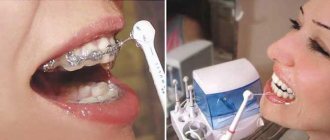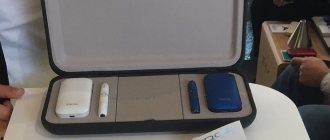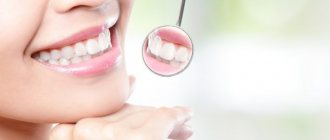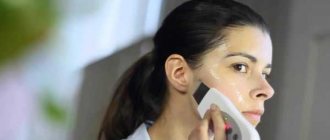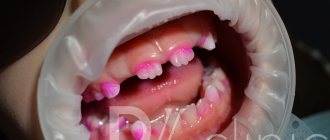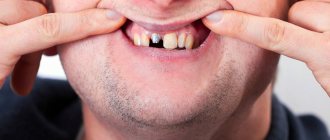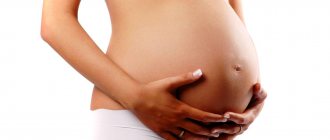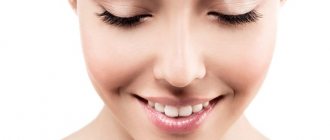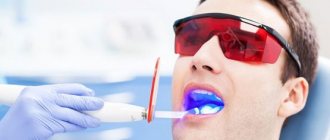Personal hygiene for a pregnant woman
You don't have to live in Ancient Greece to worship the goddess Hygieia, who personified purity and preservation of health. In those distant times, the principles of the science of hygiene were laid down, which explains how to eat, dress, and care for the body so as not to harm the body. Hygiene explains in what conditions you need to live, how to alternate work and rest, and maintain mental health.
Hygiene for a pregnant woman takes into account physiological changes in the body of the expectant mother. Under the influence of the hormone progesterone, local and general immunity decreases, and a woman becomes more susceptible to infections. Therefore, it is necessary to keep the skin and mucous membranes clean.
To do this, you should adhere to the following rules of personal hygiene:
- take a shower 2 times a day;
- use neutral or baby soap;
- do not wash the body and intimate area with antibacterial agents;
- wash the genitals from front to back;
- Do not use depilatory cream.
In pregnant women, the level of estrogen in the blood increases; hormones stimulate the active reproduction of beneficial vaginal microflora. This leads to an increase in the amount of whitish discharge. To prevent them from staining your laundry, you can use personal hygiene pads. But it is better to choose brands without fragrances, so as not to cause an allergic reaction.
Toothpastes
There are also some restrictions on the choice of toothpaste, and it is worth remembering the nuances associated with pregnancy. Doctors do not recommend the use of whitening toothpastes to all pregnant ladies, without exception. The fact is that such pastes contain coarse particles that provide a whitening effect, but at the same time, it is worth remembering that a pregnant woman’s teeth become vulnerable and such pastes can cause harm. In addition, such pastes also contain whitening substances of chemical origin; such substances are also not particularly beneficial for the teeth of a pregnant lady.
It is best to choose pastes from the therapeutic and prophylactic class. These pastes contain various microelements - calcium, phosphorus, fluorine. By the way, pastes with fluoride can be used; fluoride cannot penetrate the placental barrier and, therefore, cause any harm to the baby, and it acts at the local level.
In addition, such pastes can contain various infusions and decoctions of medicinal herbs as additives. Most often these are chamomile, lemon balm, oak bark, sage and many others. Such pastes will serve as preventive and therapeutic hygiene products at the same time; plant decoctions have a therapeutic effect by relieving inflammation.
The ideal option is to alternate pastes; after using pastes containing minerals, you need to use pastes with herbs. But the final advice still remains with the dentist.
Rule 2. Eat right
The need for nutrients and vitamins during pregnancy doubles, and the process of food digestion changes, intestinal motility slows down, and the production of hydrochloric acid in the stomach decreases. Therefore, nutrition during pregnancy must meet the following hygiene requirements:
- balanced in composition;
- contain a sufficient amount of vitamins;
- in small portions, but at least 4 times a day;
- without dyes, preservatives and other toxic substances.
Eliminate alcohol from the diet, reduce the amount of sweets and fatty foods, and increase the proportion of vegetables and fruits. But you won’t be able to increase your vitamin intake through diet alone. For pregnant women, there are special vitamin complexes that contain all the necessary components in the required proportions.
What is the essence of manipulation?
This is the removal of dental deposits in the form of plaque and stone using ultrasound. Plaque is a precursor to the formation of tartar, which gradually disrupts blood circulation in the oral cavity, causing caries, periodontal disease, and sometimes gum abscesses. Also, tartar, as a result of hardening of food debris, smells unpleasant. And this smell cannot be eliminated by regular brushing of teeth. Ultrasonic cleaning removes odor along with the stone. It brightens enamel and freshens breath. After this manipulation, patients say that they feel a pleasant renewal in their mouth.
Professional ultrasonic cleaning is carried out with a special device - a scaler. And although many patients are afraid of it, when they decide to try it for the first time, they are always satisfied with the result and are convinced that it is absolutely painless. The procedure is non-invasive, meaning it is performed without incisions or drilling. It is carried out with special soda, which, under water pressure and with the help of oscillatory movements, destroys deposits on the teeth.
Timely ultrasonic cleaning prevents many dental problems, and therefore reduces the number of trips to the dentist.
Sometimes this manipulation is confused with bleaching the chewing organs. The latter can actually harm the teeth if the procedure is carried out by an inexperienced specialist or the patient resorts to it too often, wanting to get snow-white teeth. Ultrasonic cleaning, unlike whitening, does not significantly change the color of teeth, but only slightly brightens it by removing unnecessary deposits.
More on the topic
How and in what cases is vacuum cleaning performed after childbirth?
In what cases and how is the uterus cleansed after childbirth?
Pregnancy after cleansing
Is it possible to do facial cleansing during pregnancy?
Is it possible to have teeth removed during pregnancy?
For whom manipulation is contraindicated?
Despite the harmlessness and painlessness, this procedure is not indicated for all people. It is prohibited to perform it if a person has dental implants and dental hypersensitivity. Cardiac arrhythmia, bronchial asthma, tuberculosis, HIV, hepatitis are also taboos for carrying out this type of cleansing. It is undesirable to carry it out when the bite changes, that is, in adolescence and childhood. Children undergo manual cleaning with special dental instruments.
Rule 3. Fresh air
During pregnancy, the need for oxygen increases, so walking in the fresh air is important. From a hygiene point of view, it is better to walk in a park where there is no noisy road or a lot of cars. In the hot season, this is done in the evening, during sunset.
In an apartment, to maintain hygiene, it is necessary to ventilate the rooms as often as possible. Dust that settles on things and floors contains a large number of allergens and harmful substances. Therefore, for the health of the expectant mother, you need to do daily wet cleaning.
Is it possible to whiten teeth during pregnancy?
Teeth whitening during pregnancy is usually contraindicated, either at home or professionally. However, dentists claim that there is no threat to the life of the baby and the expectant mother.
Why is teeth whitening most often not recommended during pregnancy? Professional whitening is based on powerful oxidative processes that occur when atomic oxygen acts on dental tissue, and the light of special lamps activates the reaction.
Rule 5. No heels
A feature of pregnant women’s posture is a shift in the center of gravity. Therefore, to maintain personal hygiene, you need to switch to shoes with a stable heel no higher than 2-3 cm. Completely giving up heels and wearing shoes with flat soles is also harmful to health.
Hormonal changes in pregnant women make the ligaments loose. Therefore, many women develop flat feet after childbirth. To avoid this, it is recommended to choose orthopedic insoles during pregnancy.
Gingivitis in pregnant women
Contrary to popular belief, even with a successful pregnancy, women can develop gingivitis during pregnancy, and the percentage of the disease is very sad. Gingivitis in pregnant women is a unique type of inflammation of gum tissue, which is less associated with the pathological effects of microorganisms, and more with hormonal variables. This inflammation is also typical for adolescents during puberty.
General symptoms can also provoke gingivitis, namely pathogenic microflora in the mouth, the presence of abundant dental plaque and lack of satisfactory oral hygiene. In addition, it is worth remembering about vitamin deficiency, which often develops during pregnancy; toxicosis and imbalance in metabolic processes also play a role. These factors may not only be the cause of the disease, but can also significantly complicate its course.
The main and main symptoms of the disease are bleeding gums when brushing teeth; gradually the disease becomes more complicated, and bleeding can appear even with the slightest and insignificant injury. In addition, patients may complain of the growth of gum tissue to such an extent that this tissue can cover a significant part of the tooth crown. This growth is accompanied by redness and swelling of the gums; there may be pain that intensifies with palpation. An unpleasant odor from the oral cavity is also characteristic, which develops for several reasons; quite often, abundant dental plaque is noticeable.
It is with this disease that some nuances of oral hygiene are mainly associated, and of course, the choice of the products used to clean teeth will depend on their presence and severity.
Hygiene after childbirth
In the postpartum period, intimate hygiene acquires new features. During the first month, lochia is released from the genital tract - a mucous-bloody discharge. To absorb them in the first few days, it is better to use urological pads, and replace regular underwear with disposable ones.
The mammary glands require special care. The main cream for nursing mothers is any drug with dexpanthenol. It helps prevent the appearance of cracked nipples and speeds up their healing. A special bra for nursing mothers will support the breasts in the correct position, and round pads for absorbing milk will keep the linen clean.
The life of a young mother is adjusted according to the needs of the baby. But modern personal hygiene products make caring for yourself and your newborn easier.
What is teeth whitening
During professional teeth whitening, chemical processes occur, as a result of which hydrogen peroxide or carbamide peroxide has an internal effect on dental tissue.
After the procedure, the pigment responsible for the color of the teeth changes - most often they become snow-white. The crystalline structure of dental tissue does not take part in the whitening procedure, so there is no need to worry about disruption of the mineral composition. Before starting the whitening procedure, it is advisable for patients to get their teeth in order and have them professionally cleaned, that is, to cure caries, remove tartar and remove plaque. Based on the doctor’s recommendations, remineralizing therapy may be necessary. It is carried out in advance, approximately a month before the start of whitening, and is required to restore tooth enamel, increase strength and prevent diseases of the gums and teeth.
https://www.youtube.com/watch?v=sNXAXVxECog
Patients who have crowns and fillings need to understand that their color will not change. It has been experimentally verified that during the whitening procedure, only your natural teeth are lightened, and the fillings will look yellow. There is only one way out - they will have to be replaced after two to three weeks. Later, as color contrasts appear, you will have to repeat the procedure.
Stages of ultrasonic cleaning
Ultrasonic teeth cleaning is a hygienic procedure. Most often it is performed simultaneously with whitening using Airflow equipment. The light vibration created by the device during the procedure breaks up deposits. At the same time, a mist of water is sprayed into the mouth, which washes away particulate matter from the teeth and cools the mouth.
If the procedure is performed for the first time, it may take at least an hour. Subsequent times, cleaning occurs much faster. The final time depends on the condition of the teeth, the amount of deposits and the procedures performed simultaneously with ultrasound.
- After the stone is removed using the machine, the specialist removes any remaining deposits with a hand finishing tool.
- Next, polishing is performed using a device with a soft rubber tip. The soft rubber device rotates, gently polishing the teeth and removing remaining deposits. Simultaneously with the treatment, a special paste is applied to the tooth, which improves the quality of the process.
- The last stage of the procedure is fluoridation, which is necessary to strengthen tooth enamel. The fluorine-containing drug has a pleasant taste with a fruity, mint or chocolate aroma. Leave the paste or gel on the teeth for about half a minute and then spit it out. Fluoride helps strengthen enamel damaged by acids and bacteria found in dental plaque.
- After completing the cleansing, it is not recommended to drink or eat for half an hour.
Professional cleaning methods
There are 2 ways to whiten teeth during pregnancy with professional cleaning:
- Air Flow device. The procedure involves the use of a special dental mixture with an abrasive. The composition is supplied under high pressure, which, however, does not destroy tooth enamel. At the same time, using a special solution, you can remove plaque not only from the surface of the teeth, but also between them. The procedure is absolutely painless and lasts about 30 minutes.
- Ultrasound. This method of teeth whitening is also considered safe during pregnancy. Using a special ultrasonic device, you can remove not only plaque, but also tartar.
However, a pregnant woman should definitely consult a doctor if it comes to teeth whitening using professional methods in the 1st and 2nd trimesters of pregnancy.
Cleaning and whitening during pregnancy
There are several basic ways in which you can get your teeth in order. These include cleaning and bleaching of various types. Bleaching is carried out after cleaning and is performed with acids. And cleaning is carried out by ultrasound or mechanically.
- Mechanical cleaning. An easy-to-implement method that can be used while pregnant. The teeth are cleaned using a special device and subsequent polishing with paste. This procedure can damage tooth enamel. Also, with heavy plaque, there may be pain in the area of the diseased teeth. Therefore, we still advise you to first consult with both a gynecologist and a dentist.
- Brushing with toothpaste. This technique is more suitable for pregnant women, as it is considered cosmetic. The specialist distributes the paste over the teeth, leaves it for a while, then polishes the enamel. Suitable for solving simple problems with the external part.
- Ultrasonic cleaning. A modern solution, thanks to which more and more girls prefer it. The specialist applies the paste over the entire surface of the teeth. Inserts connectors that will help the mouth not close. Then the ultraviolet light is directed onto the teeth. In combination with paste, complex plaque is broken down. The positive feature lies in the fact that there is no negative effect on the mucous membranes of the oral cavity. In addition, such cleaning allows you to remove plaque in hard-to-reach places. After completing the manipulations, it is enough to rinse your mouth and adhere to the rules of hygiene.
- Cosmetic whitening. Many people are familiar with this type of procedure firsthand. The essence is to apply a special gel, which, under the influence of ultraviolet light, breaks down complex tumors. After 15-20 minutes, the remaining product is removed with sponges. The downside of the procedure for pregnant women is the impact of aggressive chemicals on the oral mucous membranes.
- Cleaning from tartar. If you are faced with a problem in the form of tartar formation, there is nothing serious about it. The cleaning procedure is completely safe and you can contact any dental clinic to solve your immediate problem. It is worth understanding that you will have to endure unpleasant sensations. Because the specialist will mechanically influence the teeth. Special tools will be used for this. In some cases, a pain reliever is administered. Don't worry, there are special safe medications for pregnant women.
Contraindications to teeth cleaning in the clinic
Some doctors list pregnancy as a contraindication, but this applies to a specific number of procedures. Dentists at the Planet of Childhood clinic in Moscow select a cleaning method for expectant mothers that cannot harm their health and the health of their future children.
However, if a pregnant woman has the following diseases, then professional cleaning is prohibited:
- epilepsy;
- venereal diseases;
- infections that are transmitted by airborne droplets;
- diabetes;
- allergies to certain substances and drugs;
- asthma;
- hepatitis;
- HIV;
- Chronical bronchitis;
- any cancer;
- presence of a pacemaker implant.
We suggest you read White spots on the skin of a child: what is it and should you worry?
Before allowing or prohibiting a pregnant woman from having professional teeth cleaning, the doctor must conduct an examination. So, you definitely need to take a blood test: even if you do not have diabetes, but your sugar levels are elevated, it is better to refuse cleansing.
Cleaning for pregnant women never implies subsequent teeth whitening, since this will have to be postponed until the moment when the woman not only gives birth, but also stops breastfeeding.
Beauty or health? Can pregnant women have their teeth brushed?
Every pregnant woman is beautiful a priori. A well-groomed pregnant woman is twice as beautiful. The expectant mother is concerned about the condition of her hair, skin, nails and teeth. A snow-white smile captivates and attracts the eye. Let's take a closer look at the question that expectant mothers ask the dentist - “Can pregnant women whiten their teeth?”
There is no immediate threat to the health of the unborn baby, but for his mother, risk factors must be eliminated. Pregnancy is a global restructuring of the female body. During this period, gingivitis may develop and tooth enamel may become more fragile. Before you make a decision in favor of a Hollywood smile, you need to seek help from professionals.
Teeth whitening for pregnant women

